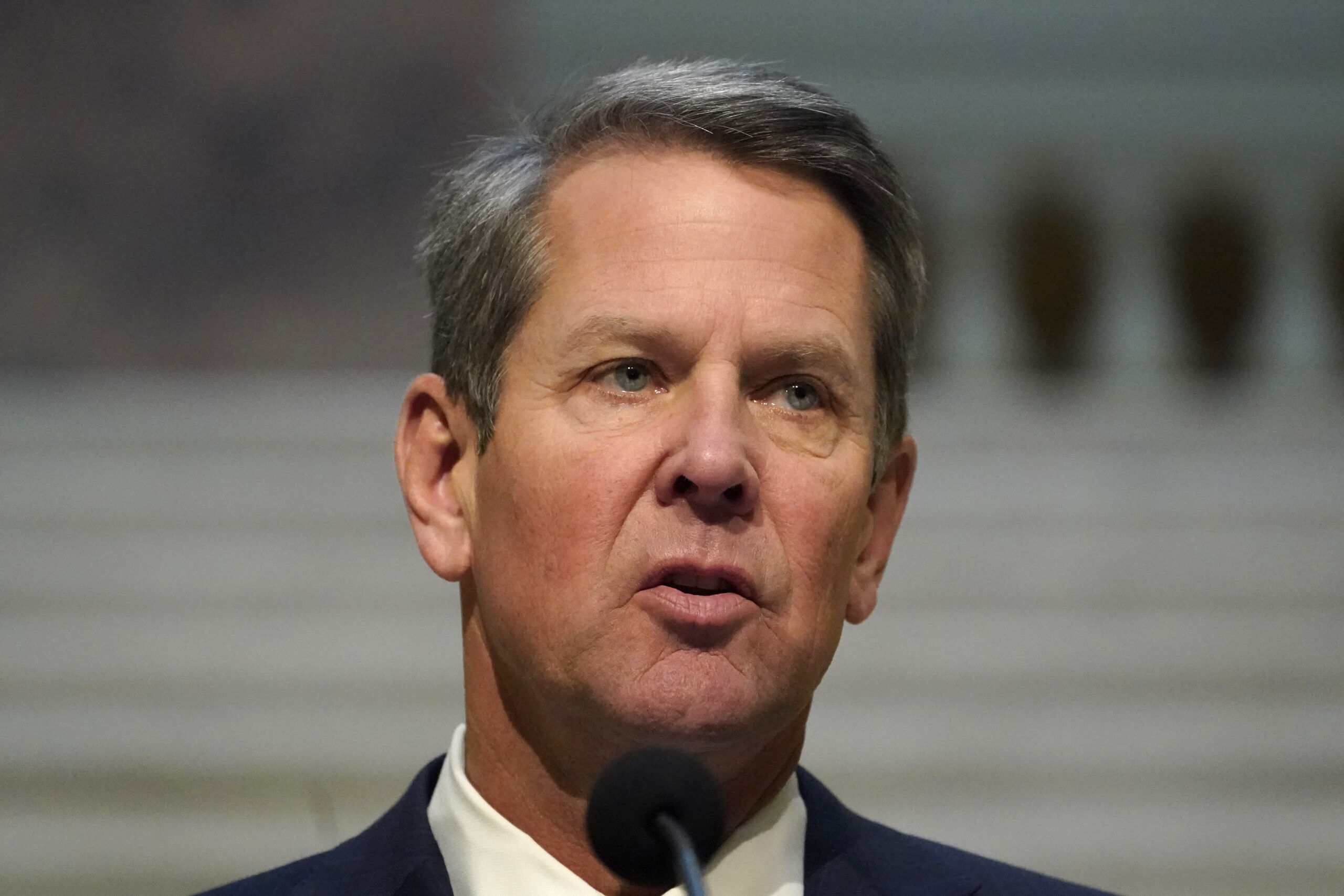Less than a week after Gov. Brian Kemp signed Georgia’s new Republican-led voting bill into law, the scrutiny has persisted.
Three federal lawsuits have already been filed to challenge its constitutionality, and calls of boycotts of some of Atlanta’s largest companies have persisted in the wake of frustration those companies didn’t do more to protest the bill.
Kemp is speaking out in defense of the legislation and those companies, trying to counter Democratic arguments that the bill is designed to suppress votes.
“I’m telling you the truth about this bill. It expands access,” he said.
Kemp argued claims of “suppression” and labels of “Jim Crow 2.0” are based on “blatant misinformation.”
“I think when people get educated on the bill and are not subjected to people misleading them on the other side about what this bill actually does, I think they’ll have good understanding of why the General Assembly took the actions that they did,” he said.
“A lot of things that we’re dealing with in this bill are because we just had a global pandemic, and it changed the way elections operate in Georgia,” Kemp said. “Before this election, we never had [absentee ballot] drop boxes. And if we hadn’t put drop boxes in this bill, there would be no drop boxes going forward.”
The new law, among many other provisions, does codify absentee ballot drop boxes and requires at least one in each county, but adds new restrictions to their location and hours.
Kemp argued that “making sure that the drop boxes are used in a secure manner and are monitored when they’re available for people to drop their ballot off” are appropriate.
“To say that this is restricting things I really think is a little bit unjust,” he said.
The law, which is made up of nearly 100-pages worth of changes, includes an expansion of weekend early voting requirements in the state, requires counties to respond to voting lines that last more than an hour, but also bans the distribution of food and drink to voters waiting in line at a precinct, outlaws mobile voting units except for emergencies and requires new identification for absentee ballots.
Regarding the ban on discretionary mobile voting units, Kemp pointed out some smaller counties “don’t have the opportunity to do that. And I think that just really makes it a level playing field across the state no matter where you are.”
Fulton County, Georgia’s most populous county, was the only one to use mobile polling places in 2020.
‘Elections Have Consequences’
Kemp disagreed that the law is responding to false claims of voter fraud pushed by former President Donald Trump
“A lot of this bill is dealing with the mechanics of the election. It has nothing to do with potential fraud or not,” he said.
“That’s still playing out with the investigations as they do after every large election. It takes months and months for that to come to fruition. The bottom line is the election is certified. President Biden is in office, and we’re moving on. But it doesn’t hide the fact that there were some issues on Election Day.”
“I’ve heard a lot of the Democrats say this year the elections have consequences. And they certainly do,” Kemp said about Republicans’ down ballot 2020 victories, which solidified their continued control of the Georgia General Assembly.
“And the people that are still governing in the General Assembly wanted to do something about the problems that they saw with this election. And that’s exactly what they have done, which is how the process works.”
Kemp decried the calls to boycott some of Atlanta’s major corporations pushed by some advocates in the wake of the bill’s passage. Delta responded with a statement arguing it “engaged extensively” with lawmakers and said the law that was signed “improved considerably during the legislative process.”
“It’s unfortunate. And it’s not fair to be boycotting businesses because of a so-called voter suppression bill that is not in Georgia,” Kemp said.
“This is all part of an agenda to drive a narrative and to pad people’s pocketbooks.”
Kemp said during the process conversations with the business community were happening “at least once a day.”
“And I think that helped us at the end of the day, get a really good bill, that bill that provides more access, but also makes sure that we’re going to have secure, accessible, fair elections in Georgia.”









